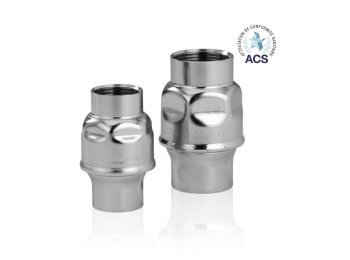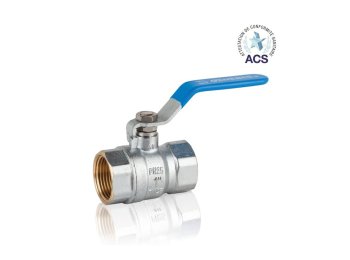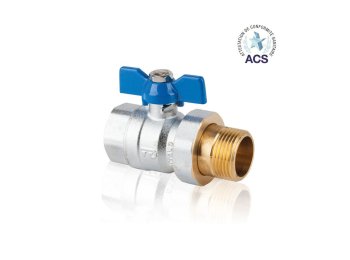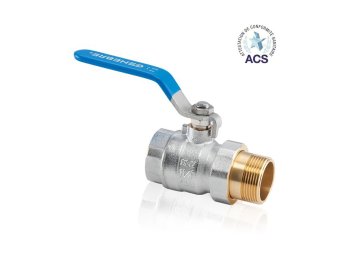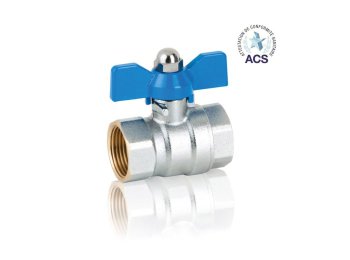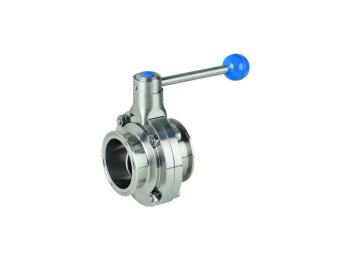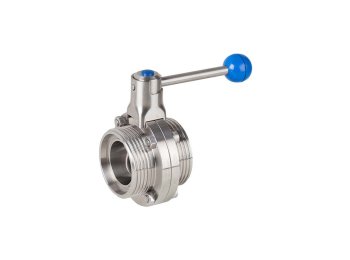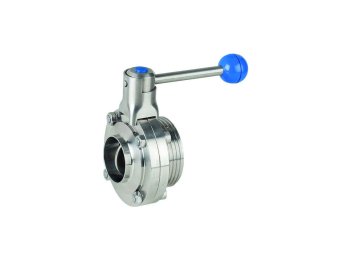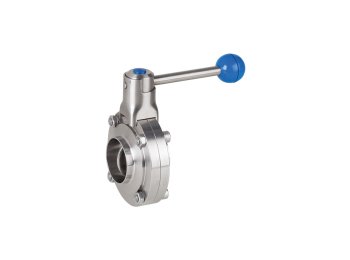Stainless steel systems for breweries: technology, efficiency, safety and maximum hygiene.
Stainless steel systems for breweries are essential in both craft and industrial beer production.
They cover the entire production process, from wort preparation to fermentation, and bottling.
The choice of stainless steel ensures corrosion resistance, long-term durability and ease of cleaning, guaranteeing food safety, hygiene and product quality.
Why is stainless steel the ideal material for breweries?
Stainless steel is preferred in the brewing industry for several reasons, especially:
- Corrosion resistance: stainless steel, especially AISI 304 and AISI 316 alloys, is highly resistant to chemicals and acidic or alkaline liquids, including cleaning agents used for sanitisation.
- Hygiene and ease of cleaning: the smooth surface of stainless steel prevents the accumulation of wort, yeast or bacterial residues, facilitating washing and sterilisation operations.
- Durability over time: compared to other materials, stainless steel retains its mechanical properties even after years of intensive use.
Resistance to high temperatures: steel systems can be used in all production stages, including high-temperature processes like wort boiling. - Compliance with food regulations: stainless steel complies with international food safety standards, ensuring a contaminant-free and safe product.
Which stainless steel to choose?
The choice depends on the operating conditions of the plant, but generally we can distinguish:
- AISI 304 stainless steel: the most common, suitable for most brewing applications, excellent corrosion resistance and easy to process.
- AISI 316 stainless steel: recommended for systems exposed to more aggressive chemicals, such as acidic cleaners. It has greater corrosion resistance thanks to the presence of molybdenum.

Technical features of stainless steel systems for breweries.
Brewery systems are designed to optimise the production process, ensuring efficiency and quality. Among the main components we find:
Fermentation and maturation tanks
Equipped with advanced temperature control systems and, in some cases, agitators, they ensure consistent and predictable fermentation, preserving the organoleptic characteristics of the beer.
Heat exchangers
Essential for the rapid cooling of the wort, they reduce the risk of bacterial contamination and preserve the quality of the product.
Filtration units
They remove solid particles and residues, ensuring clarity and stability of the beer.
Cooling systems
Maintain constant temperatures during fermentation and maturation phases, essential for obtaining a high-quality product.
Transfer pumps
Enable the efficient movement of wort and beer between tanks, minimising waste and risk of contamination.
Piping and valve systems
Built in sanitary stainless steel with welded joints or clamp fittings for easy maintenance, they are equipped with check valves and shut-off and regulating valves for flow control. They are designed to minimise stagnation areas, reducing the risk of contamination.
CIP system (Clean-in-Place)
Automates internal cleaning of equipment, ensuring high hygiene standards and reducing downtime.
Packaging and bottling lines
These are stainless steel structures for filling, capping and labelling. Generally compatible with bottles, cans or kegs, depending on the needs of the brewery, in some cases they can include modified atmosphere systems to minimise beer oxidation.
What are the main hydraulic components of a beer production system?
In the beer production process, hydraulic components play a fundamental role in fluid management, ensuring efficiency, safety and hygiene. From wort transfer to temperature control, every element contributes to the quality of the final product. Here are the main hydraulic components used in breweries:
Hydraulic pumps: the heart of liquid transfer.
Pumps in a beer system are essential for transferring liquids between the various stages of production, such as mashing, filtration, boiling, fermentation and bottling. The choice of the right pump is crucial to ensure controlled flow, preserve beer quality and avoid contamination. Pumps are essential for transferring liquids between the different stages of the production process. The main types used are: centrifugal pumps, positive displacement pumps (lobe or flexible impeller), peristaltic pumps.
Check valves: safety and hygiene in the production process.
Check valves are devices that prevent the backflow of fluids inside the pipes, preventing unwanted contamination. In particular, stainless steel check valves prevent undesired mixing that would compromise the high quality of the product, offer corrosion resistance and ease of cleaning, and meet the highest hygiene standards.
Shut-off valves: total process control.
Shut-off valves allow the interruption or regulation of liquid or gas flow in specific sections of the system, making them essential for maintenance, cleaning and production management. They offer significant advantages by allowing parts of the system to be isolated without interrupting the entire process, minimising downtime and regulating flow during all production stages.
Heat exchangers: thermal efficiency and beer production quality.
Heat exchangers in breweries are essential for rapid cooling of the wort after boiling and ensure optimal fermentation control. Plate models are the most common, thanks to their efficiency in heat exchange between hot wort and cold water or glycol. This process helps preserve the aromas of the beer and reduce the risk of contamination. In addition, exchangers contribute to energy savings by reusing dissipated heat.
Tanks and pressure vessels: safe storage and fermentation control.
Tanks and pressure vessels in breweries are essential for fermentation, maturation and beer storage. Made of stainless steel, they ensure resistance, hygiene and precise control of pressure and temperature. Fermenters favour yeast sedimentation, improving the quality of the final product. Their airtight design helps preserve the flavour and carbonation (CO₂ addition) of the beer.
Filters: purity and clarity for quality beer.
Filters in breweries remove impurities, yeasts and solid particles, improving the clarity of the beer without altering its organoleptic characteristics. The most common are cartridge and plate filters, used in the final stages before bottling. Good filtration helps stabilise the product, prolonging its shelf life. The choice of filter depends on the desired turbidity level and the style of the beer.
Cooling circuits: controlled temperature for perfect fermentation.
Cooling circuits are essential for maintaining constant temperatures in fermenters and maturation tanks. The use of glycol or cold water in jacketed systems allows precise cooling, avoiding thermal shocks that could compromise fermentation. These systems are also essential for the rapid cooling of the wort, favouring the sedimentation of proteins and improving beer stability.
Cleaning systems: hygiene and sanitisation for contamination-free production.
CIP (Clean-In-Place) systems ensure automated cleaning of tanks, pipes and equipment without the need for disassembly. They use detergent and disinfectant solutions to eliminate wort, yeast and bacteria residues, ensuring maximum hygiene. The process includes scheduled wash cycles with hot water, alkaline and acid detergents to prevent contamination. An efficient CIP system is essential for safe and high-quality beer production.
Applications in the Food & Beverage sector: beyond breweries.
Stainless steel systems and related components are used in various areas of the Food & Beverage sector:
- Wine industry: for fermentation, maturation and bottling of wine.
- Soft drink production: ensuring hygiene and quality in the processing of fruit juices and carbonated drinks.
- Dairy processing: for pasteurisation and packaging of milk, yogurt and liquid or soft cheeses.
- General food industry: for the production of sauces, vegetable oils and other processed foods.
Conclusions.
Stainless steel systems are the technological heart of modern breweries and, in general, of Food & Beverage production systems. Thanks to the resistance of the material and components (hydraulic pumps, check valves, shut-off valves…), these systems ensure hygiene, reliability and allow efficient and safe production while preserving the organoleptic characteristics of the products. Their versatility makes them essential for those who want to operate to high standards, achieve simplified maintenance and optimal control of the production process.





















